
We’ve been lucky enough to have many people review our tools over the years, and we appreciate them all.

We’ve been lucky enough to have many people review our tools over the years, and we appreciate them all.
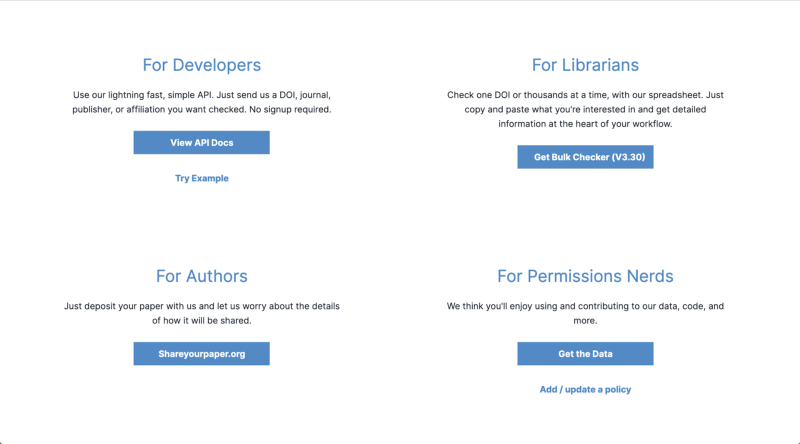
There are major updates to our tools and data to make permissions checking easier, faster, and clearer for libraries on our new website, with their new name, “Shareyourpaper.org Permissions.” On the new website you’ll find our new API, streamlined bulk permissions checking spreadsheets, a larger open dataset, and more details about how we’re doing permissions checking.
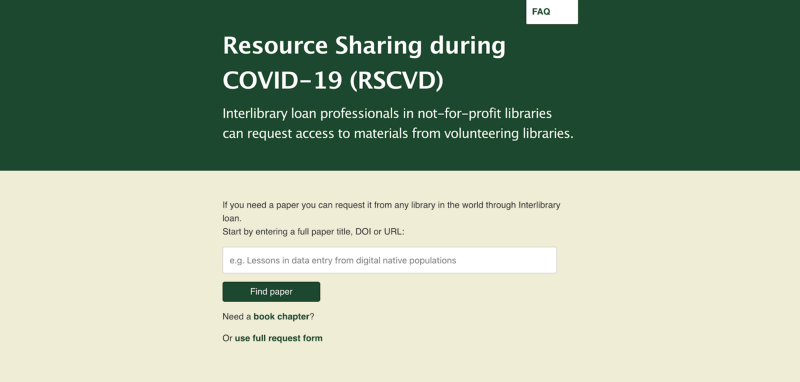
If your library’s ability to do resource sharing (i.e. ILL or document delivery) has been impacted by COVID-19, help is at hand. Interlibrary loan professionals at non-profit institutions can head to rscvd.org and volunteer librarians around the world will help to supply materials. If you’re not having trouble filling requests, fantastic!
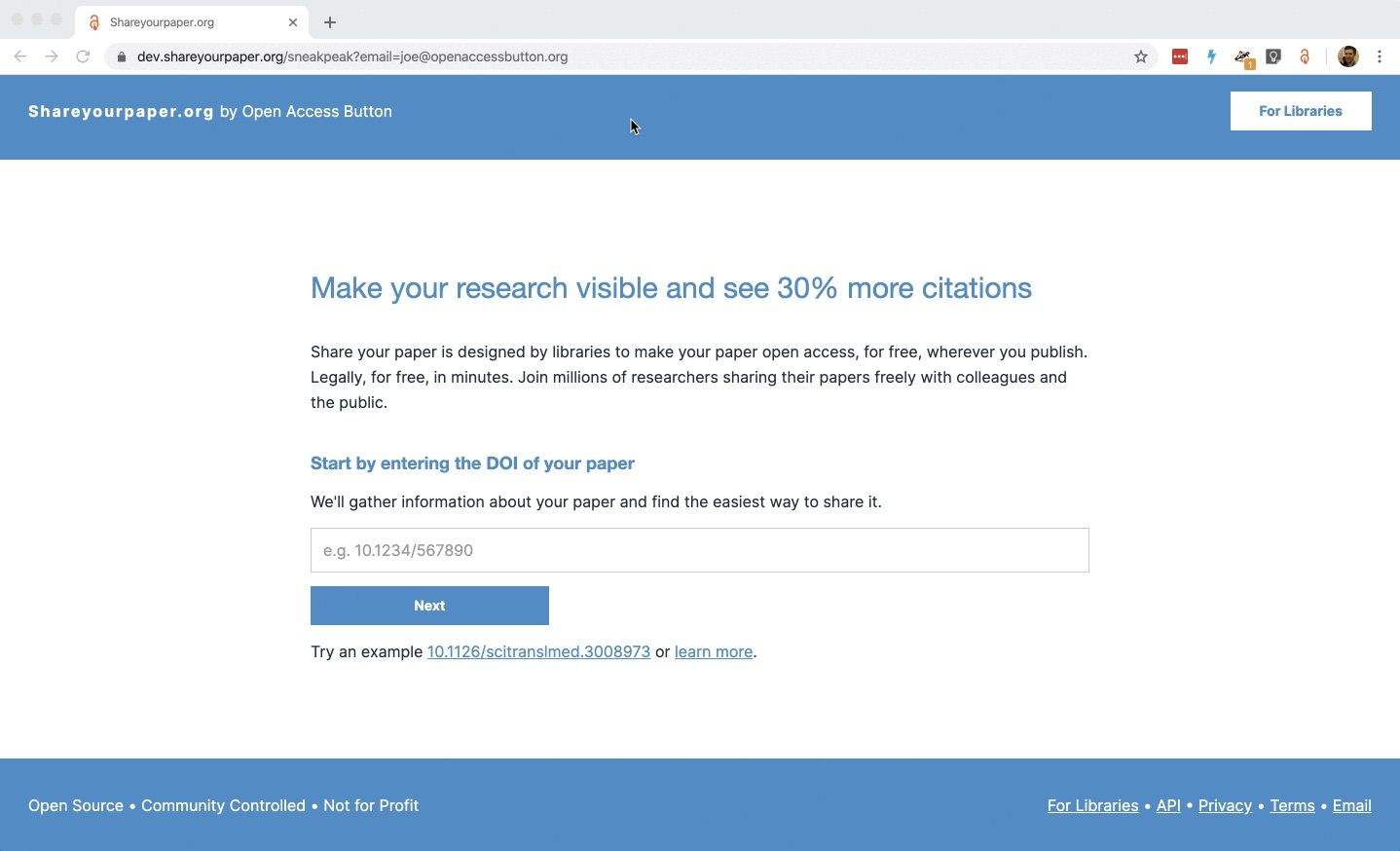
The Coronavirus pandemic has shown how critical it is that research is shared quickly and freely. We can’t go back to “b̶u̶s̶i̶n̶e̶s̶s̶ research as usual” and keep locking up the world’s research behind paywalls. That’s why we’re proud to debut Shareyourpaper.org to make it easy to share your work for anyone to read — freely and legally.
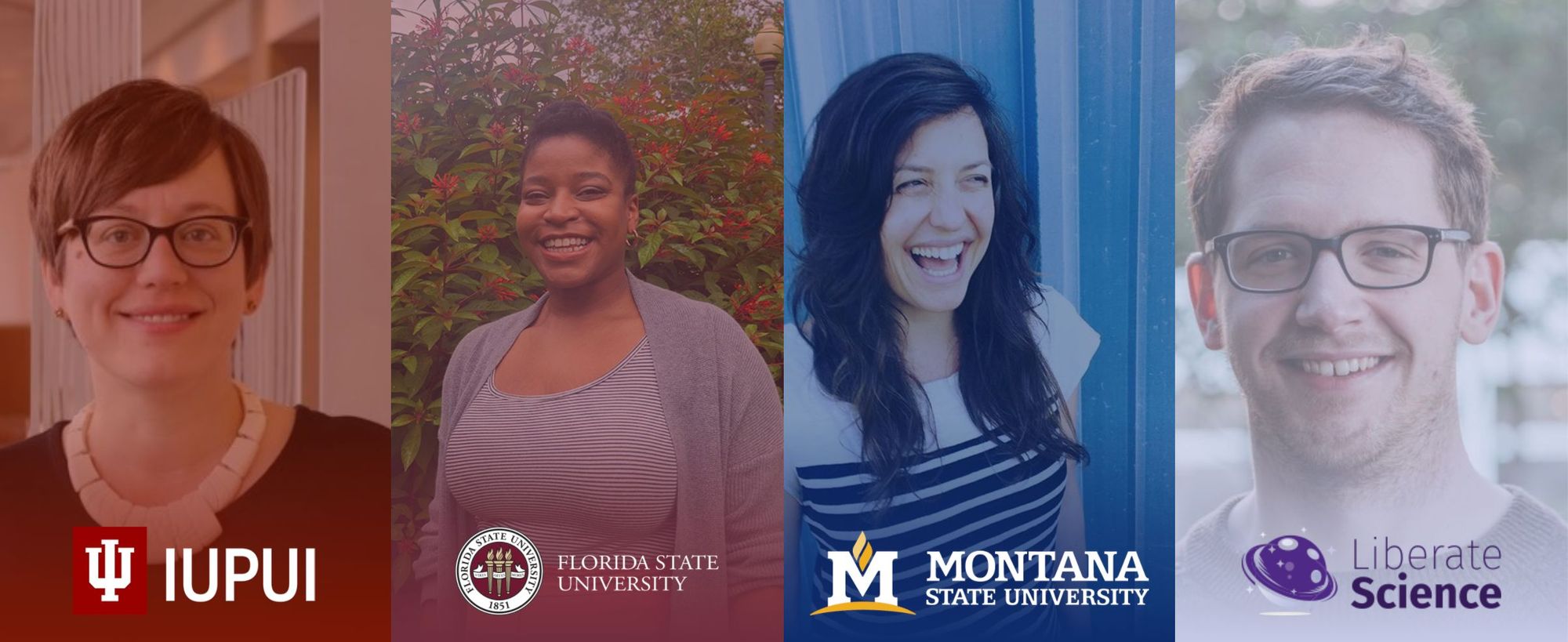
Our business model aims to ensure that financially supporting open source, community-owned tools that provide key features for free is easy and richly rewarded. Today, we’re releasing a part of this program: a showcase for institutions that are enabling our work. We’re also proud to welcome two founding leaders that have recently joined us, the University of Alberta and Liberate Science.
This week, a group of the largest publishers launched a new service, GetFTR, ostensibly designed to help readers get easier access to the full text of journal articles from their sites. Sounds good, but hang on — there’s a reason why commercial players are scrambling to launch such services: to maintain control. The pioneers in doing this have been non-profit, open source initiatives: ourselves and Unpaywall.
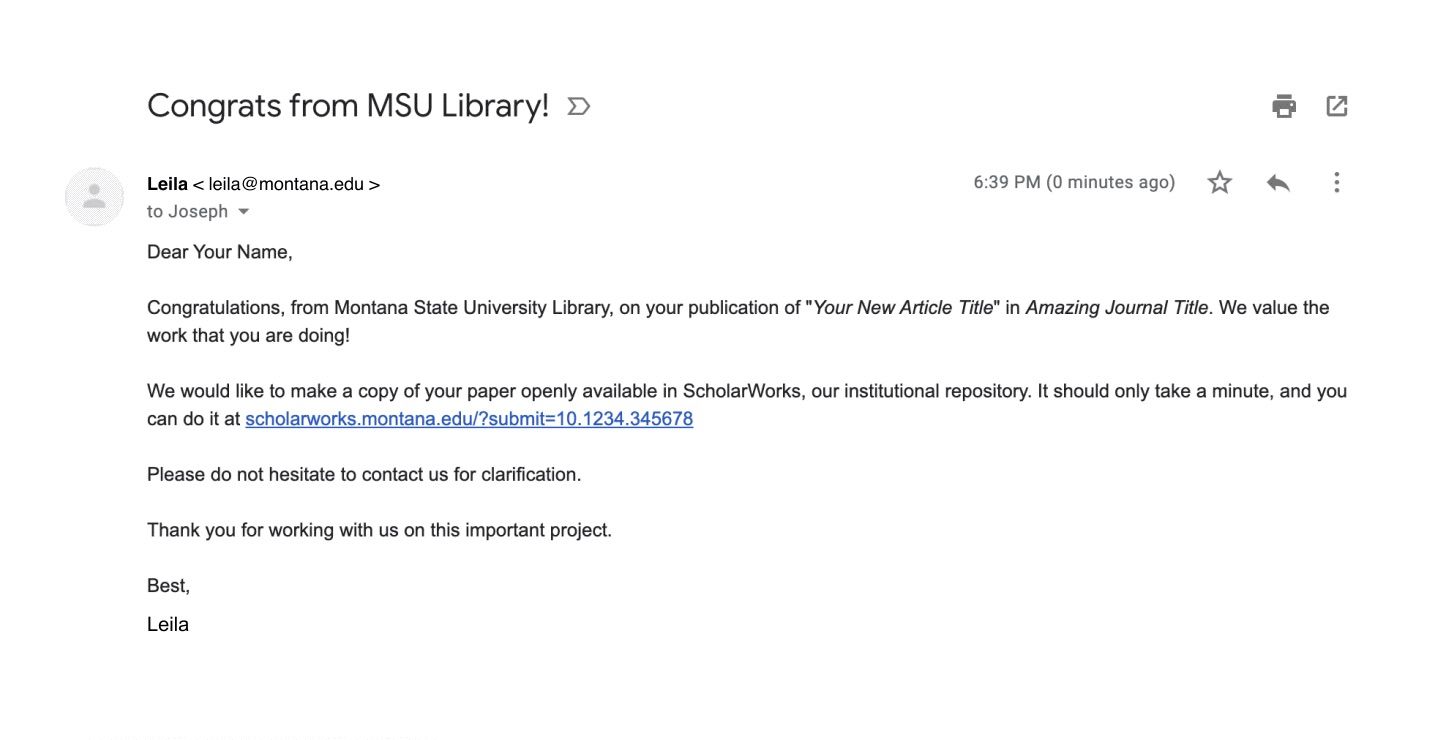
Today we’re treated to a post by Leila Sterman, our partner at Montana State, on using user testing to build Shareyourpaper.org. If you don’t know shareyourpaper.org, first check out the website and our earlier blogs , as we’ll focus on sharing our progress today. Self-archiving has a reputation for causing confusion.

While building InstantILL, alongside our partners at IUPUI University Library, we documented our engineering work and unusual partnership in a paper that you can read today.
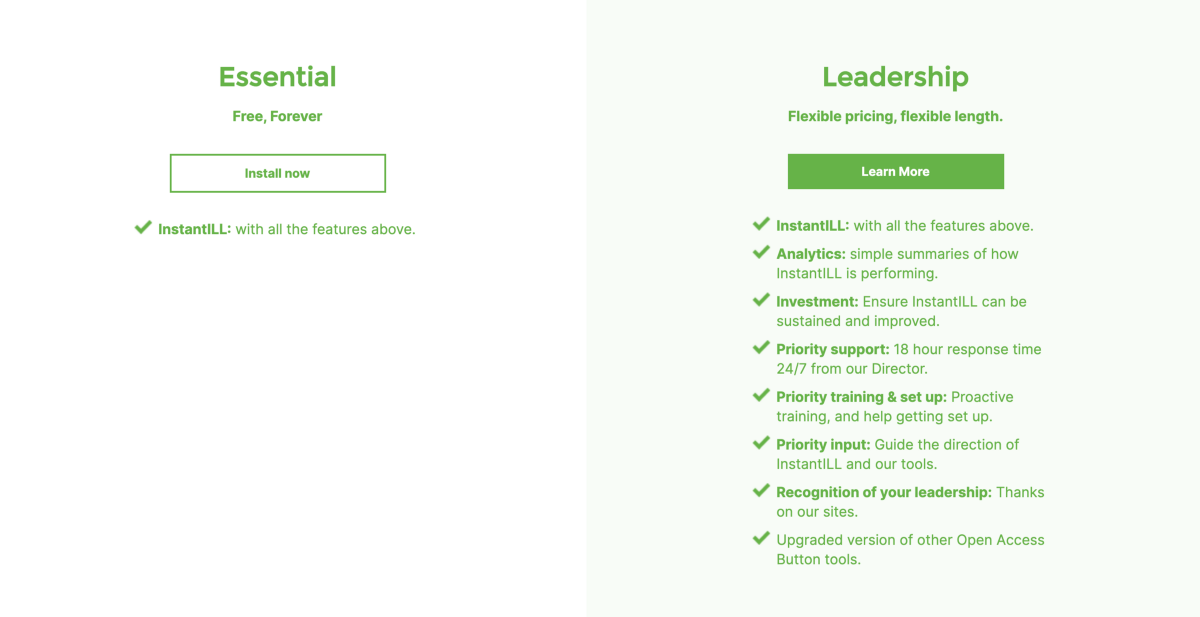
For change, not for profit. We’ve come a long way from our start as rag-tag volunteers out to change the world. As a founder and the director of the Open Access Button, I want to share how we hope to go further, and faster, with the support of libraries. Unveiling your business model is a big moment for any project. So, thankfully, I’m not tasked with justifying how we’ve sacrificed our values to be sustainable.
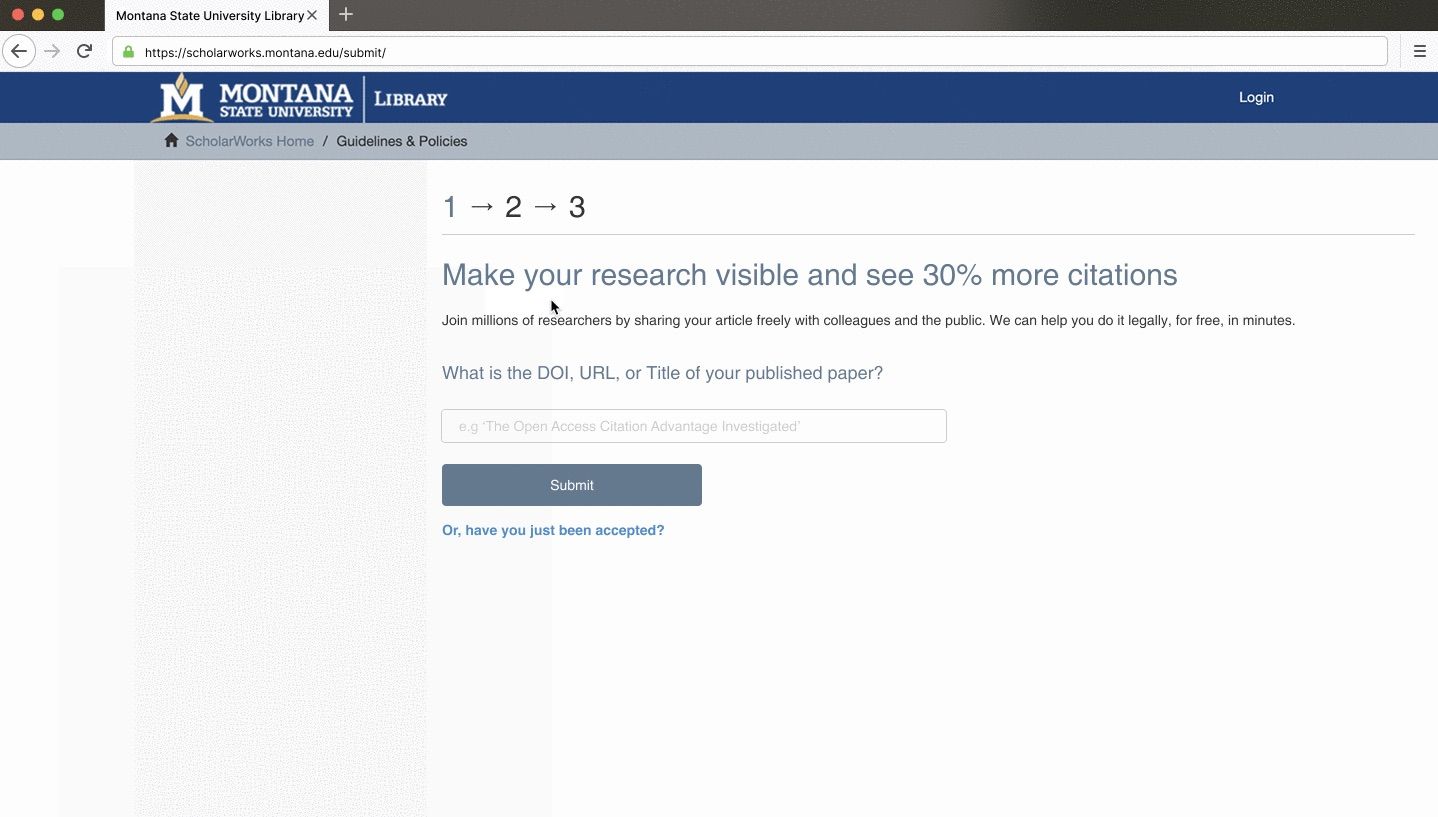
As we announced in June, shareyourpaper.org automates the deposit workflow — completing forms, checking what you can archive legally, and verifying the correct version is shared — so that authors can upload their papers without libraries having to check their work. These features can reduce the deposit process for your repository to a single click from your website, saving both depositor and library staff time.